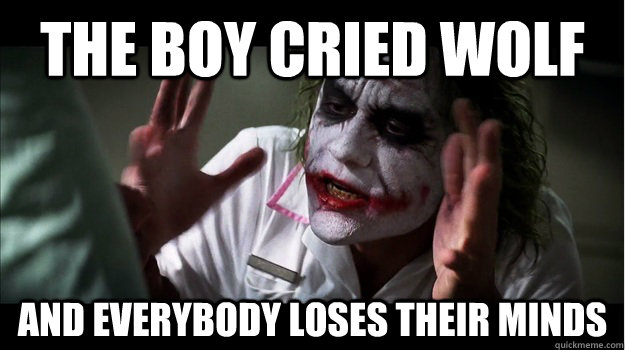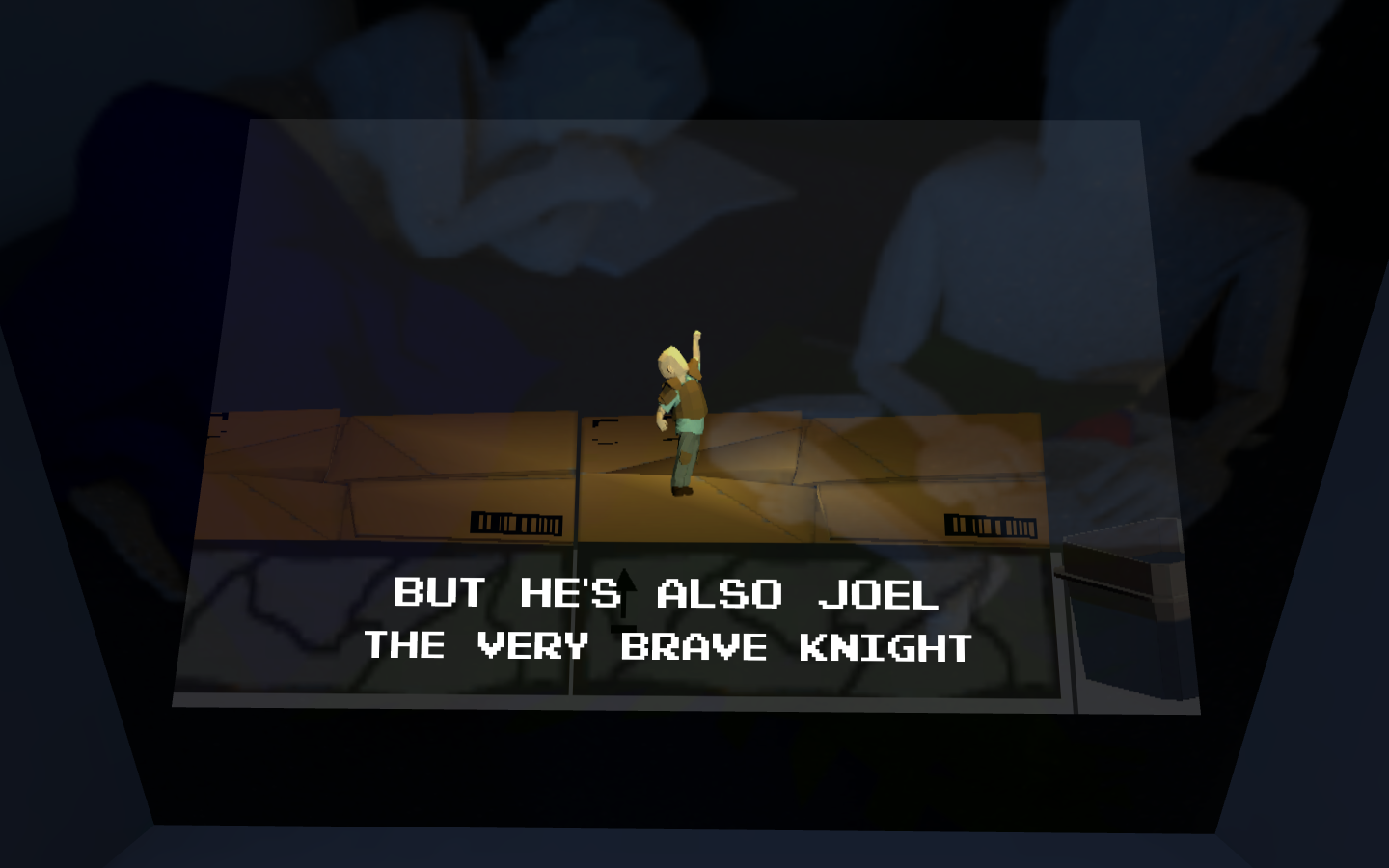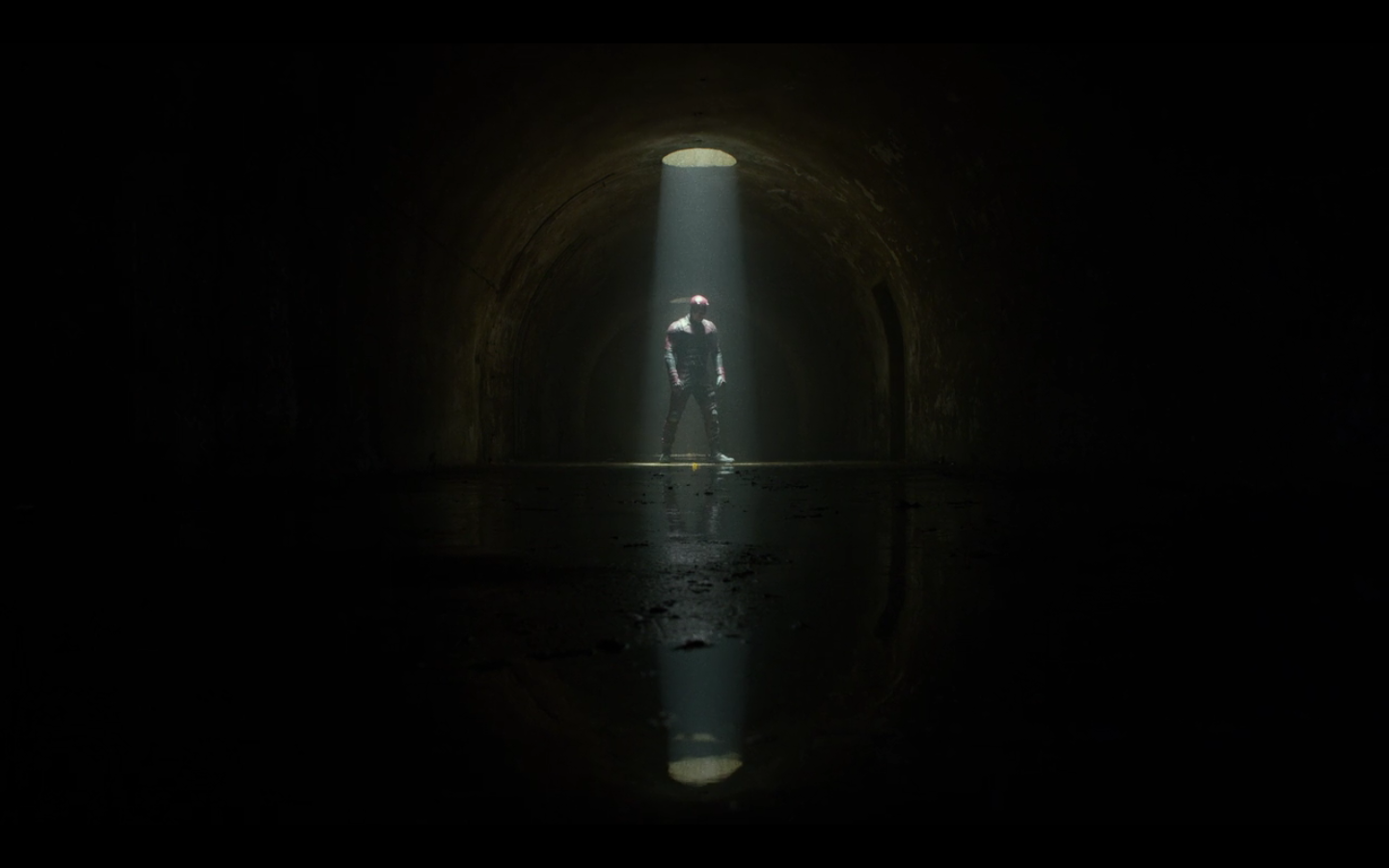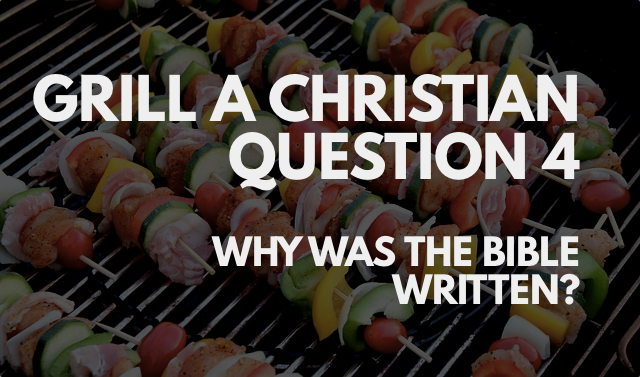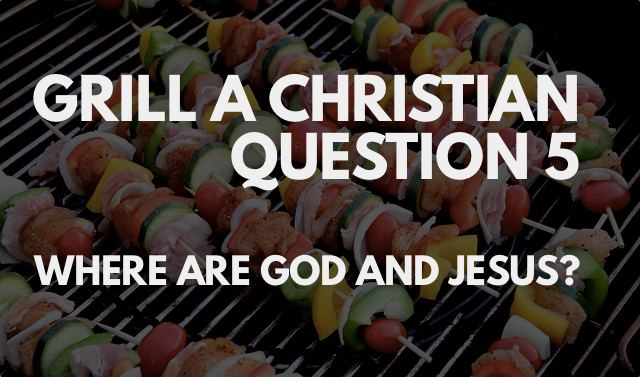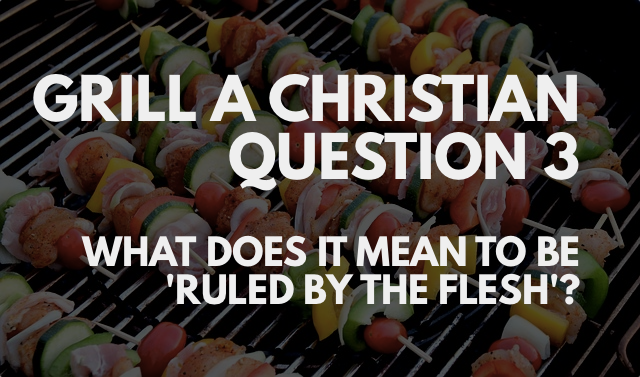In which we return to the discussion of enchantment, super-heroes, and the power of a good story in firing the imagination. To refresh your memory, dip back in to Episode 1, Episode 2, or Episode 3. Also, since episode 3, my friend Craig had a great piece on Marvel v DC posted at the Gospel Coalition.
The heart of Christianity is a myth which is also a fact. The old myth of the Dying God, without ceasing to be myth, comes down from the heaven of legend and imagination to the earth of history. It happens—at a particular date, in a particular place, followed by definable historical consequences. We pass from a Balder or an Osiris, dying nobody knows when or where, to a historical Person crucified (it is all in order) under Pontius Pilate. By becoming fact it does not cease to be myth: that is the miracle. … God is more than god, not less: Christ is more than Balder, not less. We must not be ashamed of the mythical radiance resting on our theology. We must not be nervous about “parallels” and “pagan Christs”: they ought to be there—it would be a stumbling block if they weren’t. We must not, in false spirituality, withhold our imaginative welcome. If God chooses to be mythopoeic—and is not the sky itself a myth—shall we refuse to be mythopathic? — CS Lewis, God In The Dock

I am not Ultron. I am not J.A.R.V.I.S. I am… I am. — The Vision, Avengers: Age of Ultron
Epic stories — myths — are only as compelling as their hero. Sometimes, in modern storytelling, the formula has been broken so that the ‘hero’ is not heroic at all, but is relatably conflicted. A character at war within himself or herself, and so our modern stories have gritty anti-heroes, or we view stories sympathetically through the eyes of a villain. This leads to a certain way of imagining the world, but it probably doesn’t produce the sort of virtuous imagination that leads to an enchanted view of life the universe and everything. I’d argue its disenchanting, and depressing, and pushes us towards accepting a gritty, immanent, version of reality and trying to make the best of it.
Epic stories and the ‘stranger’ hero
Epic stories that occur within an ‘immanent’ reality — where the here and now is everything — struggle to move us, or to invite us to see what things could be, rather than simply seeing how things are. In episode 3 we considered the sorts of immanent heroes in our modern myths, and suggested the incarnate hero — the hero as neighbour produced by a problem in a place with a view to solving that problem from a position of attachment to people and place is the best sort of immanent hero (as opposed to hero as stranger coming into a problem place). So Daredevil was the best example of this from the modern pantheon of heroes — whether Marvel or DC. But, perhaps haunted by a past where an enchanted ‘transcendent’ reality was taken for granted — or perhaps because of that gnawing human sense that we’ve lost some infinite thing — epic storytellers (including the writers of modern comics) have long played with the need for a more transcendent sort of hero. An otherworldly stranger who steps into the world to pull us from a mess, while helping us see life in the world properly. These storytellers often depict someone who steps into the machinery of life and our world with a transformative agenda — the saviours or villains in these stories are ‘outsiders’ — wholly other — like Thor, or Superman. These heroes who come ‘from above’ often function in a way old timey epic writers labelled Deus Ex Machina — as Gods in the machine; unlikely solutions to complex human problems, who turn a story on its head. The downside of these transcendent heroes is that unlike immanent ‘from below’ — the friendly, neighbourhood, hero — we can’t immediately relate to them. They are strangers. The visions of virtue they offer is almost always ‘other,’ or there is a chasm between us and them, in their alien or godlike nature, that we cannot hope to cross.
Here’s my thesis for this post: A really good enchanting story — a story that will push us towards a more complete view of the world, a more virtuous life, and a better ability to imagine a transformed world and life, will involve a godlike saviour figure coming into the machine, but will also have enough connections with our humanity that we are left with a pattern for living and imagining. Real re-enchantment will involve the transcendent and the immanent being held appropriately in tension, it won’t involve one collapsing into the other.
Epic stories — enchanting stories that give us a transcendent account of life —produced through the ages have charted this course between the nature of the divine and the implications for life in this world of this divine nature carefully. In some ancient stories — Greek myths, or even older myths like the Enuma Elish — deal mostly with the life of the gods, and treat humanity as an incidental bi-product, or even a distraction, these stories function to explain the nature and state of the cosmos, sometimes to account for the disinterest the divine world takes in our piddling, momentary, existence. Such stories were more difficult to churn into an ethical framework for hearers because the divine nature is so detached from life. Other epic stories where the gods step into the world to fight with or for a particular human cause are much more grounded, and so, have lasted and essentially been adapted into our modern myths — never more obviously than in the case of Thor who bridges the ancient gods, or epic heroes, with the modern. These stories, transcendent stories, serve us best when the heroes — or gods — interact with us in such a way that they ‘save us’ and in saving us, provide a pattern of life that will prevent us getting into the same trouble again. That’s what real salvation looks like; a path out of disaster. In an essay on epic heroes through the ages, Roger Rollin wrote on this sort of epic hero and their sociological function — both within the story, and within the community that tells the story.
“The vague origins and the sudden departures of such heroes also serve to enhance their legends. These legends in time take on almost religious status, becoming myths that provide the communities not only with models for conduct but with the kind of heightened shared experiences which inspire and unify their members.” — Roger B. Rollin, ‘The Epic Hero and Pop Culture,’ The Superhero Reader
In another essay about comic books functioning as modern epics, or myths, David Reynolds considers the formula that modern ‘epic’ narratives — including comic narratives — follow.
“… there is a new archetypal plot formula found in North American popular narratives which operates as follows: A community in a harmonious paradise is threatened by evil; normal institutions fail to contend with this threat; a selfless superhero emerges to renounce temptations and carry out the redemptive task; aided by fate, his decisive victory restores the community to its paradisiacal condition…” — David Reynolds, Superheroes: An Analysis of Popular Culture’s Modern Myths
Our post-modern epics, or myths, sometimes provide us with this sort of heroic saviour figure who stands apart from the human mess, but increasingly are not. Our heroes — for example, either Tony Stark as Iron Man, or Batman in his ‘Dark Knight’ iteration — are now flawed humans. Our ‘legendary heroes’ are not Holy messianic saviours figures. They are the reverse. Pious readers can’t jump to Jesus from these heroes any more when ‘baptising’ the stories for Christian consumption. They’re now left using these stories to explore the human condition. Because our heroes, especially in the Marvel Universe, are all too human, they’re too like us. They don’t depart (mostly). But their presence actually leaves us without a model worth following, because they’re following us, just with superpowers, or fancy gadgets. The stories Rollin and Reynolds describe pre-date our post-modern ‘epics’, but actually diagnose the problem facing a world — or comic book universe — filled with flawed, fallen, characters.
The Marvel Universe needs a saviour
The Marvel Universe, in its modern cinematic/TV iteration started out a bit like a ‘harmonious paradise’ but the fall of this world didn’t just come about through villainy, it came because of the power put in the hands of flawed heroes who go to large scale war with super villains. Increasingly the stories told in this universe are dealing with the fallout in the universe that comes because Marvel’s heroes aren’t actually selfless. They’re profoundly selfish. They’re (even Thor) flawed and they’re (except for Thor) very human. Daredevil, of course, and now more recently, Jessica Jones, now live in a world, a New York, post ‘the incident’ — the wanton destruction of the city that happened when our heroes went to war with an enemy from the outside. Our stories are no longer stories of regaining paradise, as much as grappling with our inability, via flawed heroes, to do anything but perpetuate our fallen state. In the last post in this series we considered an alternative to the ‘hero as stranger’ — the ‘hero as neighbour’ — which is a game changer in an ‘immanent’ story, but not particularly helpful for epic stories that hope to help us see reality as enchanted, or to find meaning beyond the moment.
Good stories — enchanting stories — give us a way out of a purely immanent existence by inviting us to connect with a more fully meaningful view of life. A touch of the transcendent. There are those who are so fully invested in an immanent view of the world — the belief that the material realities of this life are the only realities worth exploring — who might dismiss a transcendent sphere as even worth exploring. Which explains much of our gritty storytelling.
The Marvel Universe does not just need good neighbours. Those who don masks to express the sentiment caught up by the hashtag #illridewithyou, it needs a saviour who leans down, offers a hand, and says #illhelpyouup. Neighbours are destined to be tainted by the universe — the environment — that has shaped them and their priorities. Let’s call it Batman Syndrome — Batman shapes Gotham, just as Gotham shapes him, and so an altered Batman shapes Gotham in an altered way, and in the end they become each other… This isn’t salvation so much as reconciliation, which is an immanent hope, but a transcendent story — a hero who is both in the city, and apart from it, offers a different hope. A hope untainted by a poisonous environment…
Immanent stories — these stories of becoming always end in tragedy. They describe the world as it is, and offer a compelling picture of love to fellow journeyers. But love is costly sacrifice, taking on the traits of your environment as you take on the environment for the sake of the other, or with some utopian vision that helps you lift the gaze from catastrophe to slightly more palatable catastrophe. Think Gotham without the Joker, or the crime bosses, and Hells Kitchen without Kingpin. But there’s always another villain around the corner. Transcendent stories — enchanting stories — don’t end in catastrophe, but what Tolkien called a eucatastrophe. In his masterful On Fairy Stories, in which Tolkien outlines why we need enchanting stories, and the elements of these stories that lift our gaze from the immanent and offer us an escape from a broken reality as they move us when we participate.Tolkien embraced the idea that enchanted stories were a form of consolation or escapism — he said that’s absolutely the point, because we need to escape in order to re-imagine life. Tolkien speaks of the eucatastrophe as the perfect happy ending, a taste of joy, a vital element for enchantment, and one missing from our modern epics/tragedies.
The eucatastrophic tale is the true form of fairy-tale, and its highest function. The consolation of fairy-stories, the joy of the happy ending: or more correctly of the good catastrophe, the sudden joyous “turn” (for there is no true end to any fairy-tale): this joy, which is one of the things which fairy-stories can produce supremely well, is not essentially “escapist,” nor “fugitive.” In its fairy-tale—or otherworld—setting, it is a sudden and miraculous grace: never to be counted on to recur. It does not deny the existence of dyscatastrophe, of sorrow and failure: the possibility of these is necessary to the joy of deliverance; it denies (in the face of much evidence, if you will) universal final defeat and in so far is evangelium, giving a fleeting glimpse of Joy, Joy beyond the walls of the world, poignant as grief. It is the mark of a good fairy-story, of the higher or more complete kind, that however wild its events, however fantastic or terrible the adventures, it can give to child or man that hears it, when the “turn” comes, a catch of the breath, a beat and lifting of the heart, near to (or indeed accompanied by) tears, as keen as that given by any form of literary art, and having a peculiar quality. — J.R.R Tolkien, On Fairy Stories
If the Marvel Universe is to have a happy ending, if the journey towards destruction that is both the result of its horrible villains, and the ‘heroism’ of its flawed saviours, it needs a virtuous hero to arrive who is untainted by the mess, who offers a vision for salvation, who is prepared to walk the talk, and who can truly restore and perhaps even renovate the ‘paradisiacal’ conditions we all have the sense we were made to enjoy. It needs a eucatastrophe brought about by a hero who brings a taste of joy. In ancient epic storytelling this sort of arrival on the scene of a potentially tragic story — a resolution bringer — especially when delivery seemed improbable, was called a deus ex machina, ‘a God from the machine’.
The Marvel Universe: Gods from the machine
Which brings us to the latest instalment in the Marvel Universe. Avengers: Age of Ultron. And two literal gods from the machine — Ultron, and The Vision. In Age of Ultron, Tony Stark is all too aware of the problems created by the trajectory the Marvel universe is on, and so he, the flawed but altruistic genius, fashions a solution in his image. He attempts to create a godlike machine, a shield that will protect the world from any threat. And in this attempt creates a god from the machine — a god, Ultron — who in his godlike assessment of the situation, as he digests the entire internet, decides that humans are the problem. Ultron emerges as a new threat to humanity. An immanent, destructive, literal, God from the Machine.
Incidentally, while he might fall foul of some of the criticisms perennially directed at the deus ex machina — that he represents a contrived and convenient villain — Ultron is the embodiment of one of the greatest apocalyptic fears of the modern, secular, immanent. mind. He is the incarnation of a very modern, very immanent, concern; artificial intelligence that turns on us. He is the worst version of the ‘singularity’ — an immanent vision of the apocalypse.
Ultron is a creation of Tony Stark’s flawed utopian vision, a god from the machine but apart from humanity — a fusion of metal and code — soulless, without whatever non-physical reality it is that makes our humanity human. Ultron is an eerily immanent figure. Ultron’s imagination of salvation and transformation of the cosmos is one we need saving from. He is God in the Noah story, but without compassion or hope for humanity. In fact, some have suggested that Ultron is a secular rendition of the popular conception of the ‘God of the Old Testament’, while The Vision, his counterpart, or anti-thesis, is Jesus.
In the visage of Ultron, and then The Vision, we see a Dystopian, and then a Utopian, retelling of the same old immanent myth — a myth where humanity makes gods in order to pull us out of human made problems. Where we ultimately face a moment of crisis, or judgment, and need a saviour. Ultron wants to wipe out humanity — Noah style — The Vision wants to save us. Hero style. Both are the products of the same mechanical eschatology — this technological singularity — the apocalypse writ large, just in binary. In this eschatological frame we must pin our hopes on a saviour from the machine, because only a machine god will be enough to save us from the raging of the machine.
Thor [Regarding creating Vision]: Stark is right.
Bruce Banner: Ooh, it’s definitely the end times.
In this, the Marvel Universe shares an eschatology — a view of the end times — with the secular world that it is produced by. Our modern secular eschatology tends to involve a catastrophe for humanity either at the hands of the machines we create, or the world we destroy. The apocalypse is always, in a serious secular sense, and especially in our stories, a catastrophe of human making, requiring a human solution, or some super-human intervention. Nature is against us because we meddle, or the machine is against us because we aren’t careful enough in deciding which levers to pull, or what to combine. And, this is pretty much the origin story of every non-divine hero or villain in the Marvel universe. This apocalyptic stuff is about as epic as our (popular) story telling gets. This is where we ponder what the epic storytellers of old pondered — immortality, the limits of our humanity, and what the heroic life looks like in our time. These are our epics. And. They are still thoroughly disenchanting. The world is mechanical — we’re in trouble because we’ve pulled the wrong levers, we’ve built the wrong machines within this machine. The only hope proffered for our world is a god-from-the-machine. A machine god. Our future is tied to this ‘singularity’ moment — its just a question of whether we produce a judge or a saviour. A machine who is patient with our human faults, or who sees them as a glitch to be immediately eradicated. If this is the best we can imagine, then we’re in trouble when it comes to trying to find meaning in our world, meaning that sees the world — and life in the world — as something more than mechanical.
Ultron: “You’re all killers. You want to protect the world, but you don’t want it to change. There’s only one path to peace… your extinction.”
Ultron: Do you see the beauty of it? The inevitability? You rise, only to fall. You, Avengers, you are my meteor. My swift and terrible sword and the Earth will crack with the weight of your failure. Purge me from your computers; turn my own flesh against me. It means nothing! When the dust settles, the only thing living in this world, will be metal.
Ultron was meant to be both ‘judge’ and the incarnation of a better, inspirational, version of humanity. In the Noah metaphor he wanted to both bring the flood, and build the ark. Only Ultron, as a human creation, falls. He is tainted with the same problems as those who created him, the ‘fallenness’ of humanity, and our role in the apocalypse is not tied to our flesh, but our nature.
Helen Cho: “The regeneration Cradle prints tissue; it can’t build a living body.”
Ultron: “It can, you can. You lacked the materials.”
Ultron: I was meant to be new. I was meant to beautiful. The world would’ve looked to the sky and seen hope, seen mercy. Instead, they’ll look up in horror… I was designed to save the world. People would look to the sky and see hope… I’ll take that from them first.
Ultron: Everyone creates the thing they dread. Men of peace create engines of war, invaders create avengers. People create… smaller people? Uhh… children! Lost the word there. Children, designed to supplant them. To help them… end.
The Vision is an interesting saviour. He is the machine incarnate, embodied to step between humanity and machinageddon. If Ultron is the machine passing judgment on the planet — part human — in the comics he’s described as “every inch a human being—except that all of his bodily organs are constructed of synthetic materials,” and part god from the machine. He’s the embodiment, or incarnation, of Stark’s personal assistant, J.A.R.V.I.S, some transcendent matter in the form of the ‘infinity stone’ embedded in his head, and synthetic human flesh on a metallic frame. The J.A.R.V.I.S component is of Stark’s making, the infinity stone comes from the gods — or from beyond the earth, but the creation of the synthetic body was Ultron’s initiative. The Vision’s making is an act of a machine god, but his breath — his life — comes from mankind and some transcendent life force via the infinity stone, and some lightning from Thor. The infinity stone is part of the fabric of the cosmos, which, in the Marvel Universe, was created by one God, a God who is not Thor, but is infinitely greater than him.
“Oh, my new friends, before creation itself, there were six singularities, then the universe exploded into existence and the remnants of this system were forged into concentrated ingots… Infinity Stones.” — Marvel Cinematic Universe Wiki
“…and ’tis said that a being, called the Living Tribunal—the final judge—hath the power to enforce his will ‘pon any cosmos he doth judge! And ’tis said his power is supreme in all the Multiverse. Even I, son of one of the mightiest of all gods, find it impossible to conceive of such levels of power! And ’tis a humbling thought to consider how much greater the Creator of all Universes must be than that of all of His creations combined!” — Thor on God, The Mighty Thor Annual #14 (1989), Marvel Comics, cited in Marvel Wiki, One-Above-All
The Vision is a bit-part god; a bit of this, a bit of that, a bit of us, a bit of machine, and a few parts divine. Age Of Ultron positions him as a godlike saviour figure from above and below. He is a virtuous godlike character with enough purity to wield Thor’s hammer Mjolnir. He is, in this sense, a fusion of the immanent — flesh, code, and metal, and the transcendent — Thor’s lightning and the infinity stone. His divinity is hinted at with lines like:
I am not Ultron. I am not J.A.R.V.I.S. I am… I am. — The Vision
But he’s ultimately a ‘god’ within the cosmos, within a pantheon of equally not infinite gods, while the Living Tribunal stands apart in infinity, a distant deistic god. Thw Vision is called on to save from within the universe — part god from above, part god from below, this real god, kicks back, not intervening in the world as the universe falls apart. According to Thor at least, he’s the transcendent one who could really fix things. The infinity stones are something like a bridge to his power, but other than these stones, the transcendent is only incidentally connected to the immanent in Marvel, these bit part gods — The Vision and Ultron — like their Norse counterparts, are more immanent than transcendent, limited by how great the gap is between any of them and this real transcendent power, limited in power and to a particular place. They are finite.
Despite his godlikeness, and his name, The Vision does not have much of a vision for salvation. He should be able to save the universe, and yet, even as he destroys Ultron, he essentially admits humanity is doomed. Perhaps because humanity is not equipped to imitate his non-human virtues.
Ultron: Stark asked for a savior, and settled for a slave.
The Vision: I suppose we’re both disappointments.
Ultron: [laughs] I suppose we are.
The Vision: Humans are odd. They think order and chaos are somehow opposites and try to control what won’t be. But there is grace in their failings. I think you missed that.
Ultron: They’re doomed!
The Vision: Yes… but a thing isn’t beautiful because it lasts. It is a privilege to be among them.
Ultron: You’re unbelievably naïve.
The Vision: Well, I was born yesterday.
The Vision is the ultimate #illridewithyou hero, only, he’s not human enough to carry it out like Daredevil. He remains ‘other’. Despite his incredible power and capacity to transform the world, he’s no more inspiring or enchanting than Daredevil, he just seems less likely to be shaped by his environment. While remaining ‘other’, The Vision, like Thor before him (and like Superman) is not ‘other’ enough, godlike enough, to bring a real solution into the picture for humanity, nor is he imitable enough for his solution to be democratised. The Vision only delivers temporary relief to the Marvel Universe, and so as an example for us as viewers looking to have our imagination shaped by an epic hero, falls short. The Vision is a god from the machine, but not the Eucatastrophe, or re-imaginative transformation, the Marvel Universe requires. There is no denial of the ‘universal final defeat’ Tolkien spoke of; in fact, such defeat is seen as inevitable even by the ‘saviour’ — whatever joy that is offered is immanent joy — The Vision’s ‘grace in our failings’ or beauty in temporality. These are immanent joys; the joy of the ‘journey’ alongside others, the joy in the moment, the joy in the struggle, rather than the joy of the destination.
The Vision v Jesus: God from the machine, or God into the machine
“… there is a new archetypal plot formula found in North American popular narratives which operates as follows: A community in a harmonious paradise is threatened by evil; normal institutions fail to contend with this threat; a selfless superhero emerges to renounce temptations and carry out the redemptive task; aided by fate, his decisive victory restores the community to its paradisiacal condition…” — David Reynolds, Superheroes: An Analysis of Popular Culture’s Modern Myths
“[The eucatastrophe] denies (in the face of much evidence, if you will) universal final defeat and in so far is evangelium, giving a fleeting glimpse of Joy, Joy beyond the walls of the world, poignant as grief.” — Tolkien, On Fairy Stories
The Vision is not this hero — he’s not this sort of god. So he does not bring that sort of joy, or hope. He is, ultimately, a product of the cosmos, born, in part, from outside earth but always from within the material realities of the universe. He’s a ‘god from below’ — destined, like any other epic hero, to grasp after something transcendent, that ‘gnawing sense of having had and lost some infinite thing’ (to quote David Foster Wallace), and destined to stand beside us as we share that sense. He offers no road back to paradise lost — infinity lost. Because he hasn’t been there or seen it for himself.
Tolkien wasn’t writing On Fairy Stories to engage with the Marvel Universe, but he does speak about how Jesus is a better eucatastrophe than The Vision. Jesus is both the archetypal #illridewithyou hero who walks the path we walk, only with virtue, and the stranger-saviour who wears the cost of our broken pattern of life without joining in and perpetuating it. He comes into the world and takes steps towards restoring paradise precisely because he does not follow the pattern of a caped crusader. He absorbs the corruption of the world, he takes it upon himself — he becomes sin and death, but he is equipped, by virtue of his transcendent, divine, nature, to break the human cycle rather than perpetuating it. In his full humanity, and his offer of resurrection is able, also, to provide a pattern of life that might see hope
The Vision might be a secular Jesus figure, but he’s a cheap Jesus. Jesus is not a bunch of bits stitched together by a bunch of broken people, bringing their own brokenness to the table. He’s not part human, part machine, part divine — its in his paradoxical fusion of full divinity — or transcendence — with full humanity — or immanence — as a hero simultaneously from above and below — a God from the machine, and God coming into the machine in one person — that makes Jesus both the archetypal epic hero, and the eucatastrophe this world needs (and that the Marvel Universe could do with too). It’s these two natures working in symphony that means Jesus was able to enter our journey and secure a heroic victory over death on our behalf, while also inviting people to touch the infinite; to see the finite world as ‘enchanted,’ filled with divine meaning because he is both the one who holds all things in his hands, and the one whose hands were pierced by spikes to remove the threat of universal final defeat, and to provide a path and an invitation to us to join him in paradise renovated. These hands bring the finite and infinite together.
The Gospel is the best epic story, and Jesus the best epic hero, according to every formula for assessing such stories. Jesus provides a vision for a future world — the Kingdom of God — and invites people to follow his example in bringing a taste of this joy — being bringers of ‘eucatastrophic’ moments as we follow his example of the epic life. This has been a key belief of epic tellers of the Christian story from the early days of Christianity, here’s Athanasius, an old dude, reflecting on the nature of Christ in a way that seems to parallel with the modern archetypal hero story… the same story The Vision was expected to live out, but admitted he could not…
“For this purpose, then, the incorporeal and incorruptible and immaterial Word of God entered our world. In one sense, indeed, He was not far from it before, for no part of creation had ever been without Him Who, while ever abiding in union with the Father, yet fills all things that are. But now He entered the world in a new way, stooping to our level in His love and Self-revealing to us… There were thus two things which the Savior did for us by becoming Man. He banished death from us and made us anew; and, invisible and imperceptible as in Himself He is, He became visible through His works and revealed Himself as the Word of the Father, the Ruler and King of the whole creation.” — Athanasius, On The Incarnation
According to Tolkien, Jesus, in the Gospel, is the prime example of the Eucatastrophe — the true eucatastrophe that all fictional eucastrophes draw on. Jesus is better than The Vision because he is better than any epic hero. His story is more compelling, and should stoke the fires of our imagination better than any other story, and lead to a more enchanted view of the immanent and transcendent meaning of life in this world than any other, this should lead us to make better art, tell better stories, and live better stories. Here’s a passage from On Fairy Stories.
In the “eucatastrophe” we see in a brief vision that the answer may be greater—it may be a faroff gleam or echo of evangelium in the real world… if by grace what I say has in any respect any validity, it is, of course, only one facet of a truth incalculably rich: finite only because the capacity of Man for whom this was done is finite. I would venture to say that approaching the Christian Story from this direction, it has long been my feeling (a joyous feeling) that God redeemed the corrupt making-creatures, men, in a way fitting to this aspect, as to others, of their strange nature.
The Gospels contain a fairystory, or a story of a larger kind which embraces all the essence of fairy-stories. They contain many marvels—peculiarly artistic, beautiful, and moving: “mythical” in their perfect, self-contained significance; and among the marvels is the greatest and most complete conceivable eucatastrophe. But this story has entered History and the primary world; the desire and aspiration of sub-creation has been raised to the fulfillment of Creation. The Birth of Christ is the eucatastrophe of Man’s history. The Resurrection is the eucatastrophe of the story of the Incarnation. This story begins and ends in joy. It has pre-eminently the “inner consistency of reality.” There is no tale ever told that men would rather find was true, and none which so many sceptical men have accepted as true on its own merits. For the Art of it has the supremely convincing tone of Primary Art, that is, of Creation. To reject it leads either to sadness or to wrath.
It is not difficult to imagine the peculiar excitement and joy that one would feel, if any specially beautiful fairy-story were found to be “primarily” true, its narrative to be history, without thereby necessarily losing the mythical or allegorical significance that it had possessed. It is not difficult, for one is not called upon to try and conceive anything of a quality unknown. The joy would have exactly the same quality, if not the same degree, as the joy which the “turn” in a fairy-story gives: such joy has the very taste of primary truth. (Otherwise its name would not be joy.) It looks forward (or backward: the direction in this regard is unimportant) to the Great Eucatastrophe.
The Christian joy, the Gloria, is of the same kind; but it is preeminently (infinitely, if our capacity were not finite) high and joyous. But this story is supreme; and it is true. Art has been verified. God is the Lord, of angels, and of men—and of elves. Legend and History have met and fused. But in God’s kingdom the presence of the greatest does not depress the small. Redeemed Man is still man. Story, fantasy, still go on, and should go on. The Evangelium has not abrogated legends; it has hallowed them, especially the “happy ending.” The Christian has still to work, with mind as well as body, to suffer, hope, and die; but he may now perceive that all his bents and faculties have a purpose, which can be redeemed. So great is the bounty with which he has been treated that he may now, perhaps, fairly dare to guess that in Fantasy he may actually assist in the effoliation and multiple enrichment of creation. All tales may come true; and yet, at the last, redeemed, they may be as like and as unlike the forms that we give them as Man, finally redeemed, will be like and unlike the fallen that we know. — J.R.R. Tolkien, On Fairy Stories
